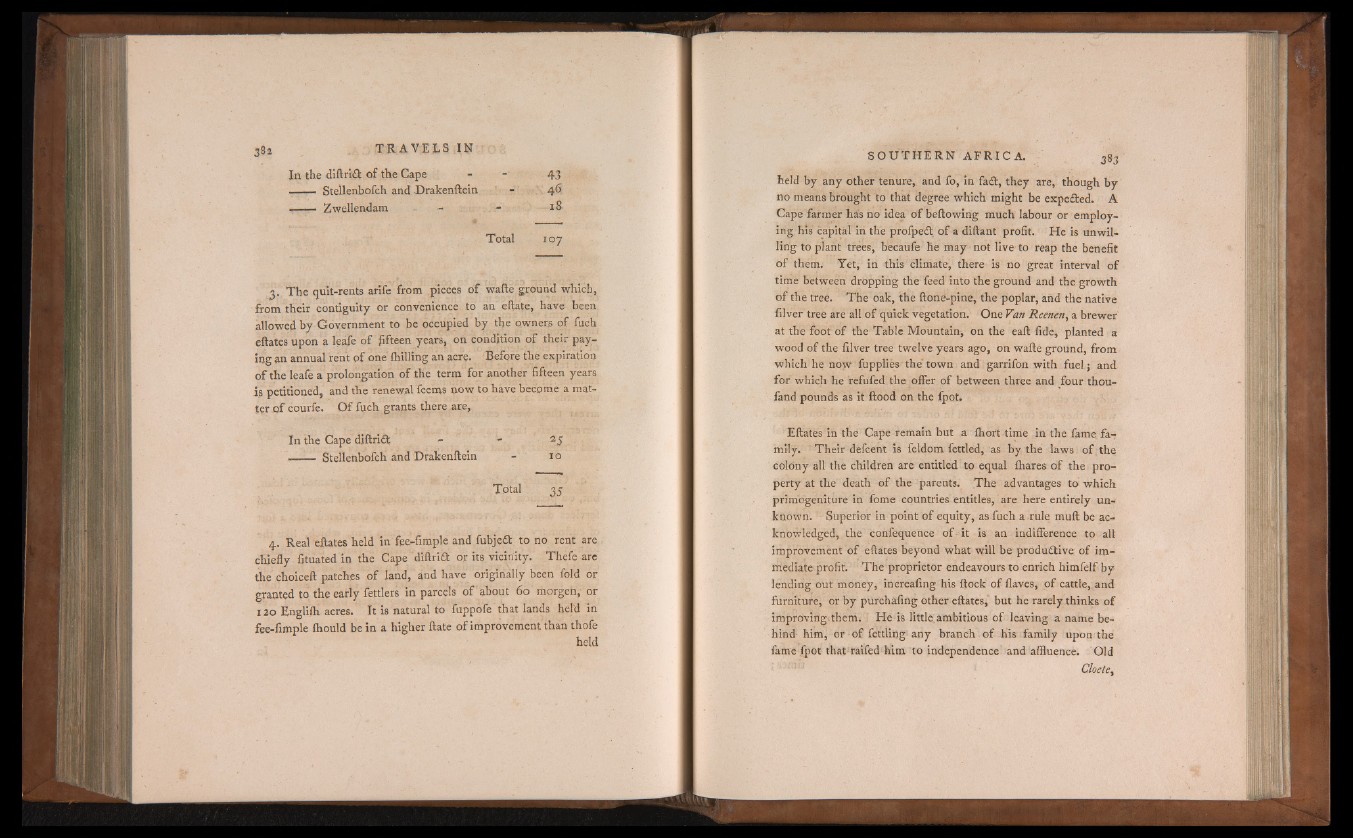
In the diftrid of the Cape - - 43
— Stellenbofch and Drakenftein - 4 6
----- Zwellendam - - 18
Total 107
3. The quit-rents arife from pieces of wafte ground which,
from their contiguity or convenience to an eftate, have been
allowed by Government to be occupied by the owners of fuch
eftates upon a leafe of fifteen years, on condition of their paying
an annual rent of one ihilling an acre. Before the expiration
of the leafe a prolongation of the term for another fifteen years
is petitioned, and the renewal feems now to have become a matter
of courfe. Of fuch grants there are,
In the Cape diftrid - 25
—— Stellenbofch and Drakenftein - 10
Total 35
4. Real eftates held in fee-fimple and fubjed to no rent are
chiefly fituated in the Cape diftrid or its vicinity. Thefe are
the choiceft patches of land, and have originally been fold or
granted to the early fettlers in parcels of about 60 morgeh,- or
120 Engliih acres. It is natural to fuppofe that lands held in
fee-fimple ihould be in a higher ftate of improvement than thofe
held
held by any other tenure, and fo, in fad, they are, though by
no means brought to that degree which might be expeded. A
Cape farmer has no idea of bellowing much labour or employing,
his capital in the profped of a diftant profit. He is unwilling
to plant trees, becaufe he may not live to reap the benefit
of them. Yet, in this climate, there is no great interval of
time between dropping the feed into the ground and the growth
of the tree. The oak, the ftone-pine, the poplar, and the native
filver tree are all of quick vegetation. One Van Reencn, a brewer
at the foot of the Table Mountain-, on the eaft fide, planted a
wood of the filver tree twelve years ago, on wafte ground, from
which he now fupplies the' town and garrifon with fuel ; and
for which he refufed the offer of between three and four thou-
fand pounds as it flood on the fpot.
Eftates in the Cape remain but a ihort time in the fame family.
“Their defcent is feldom fettled, as by the laws of the
colony all the children are entitled to equal ihares of the property
at the death of the parents. .The advantages to which
primogeniture in fome countries entitles, are here entirely unknown.
Superior in point of equity, as fuch a .rule muft be acknowledged,
the confequence of it is an indifference to all
improvement of eftates beyond what will be productive of immediate
profit. The proprietor endeavours to enrich himfelf by
lending out money, inereafing his ftock of Haves, of cattle, and
furniture, or by purchafing other eftates,' but he rarely thinks of
improving.them. He is little.ambitious o f leaving a name behind
him, or of fettling any branch of his family upon the
fame fpot that railed him to independence and affluence. Old
Cloete,